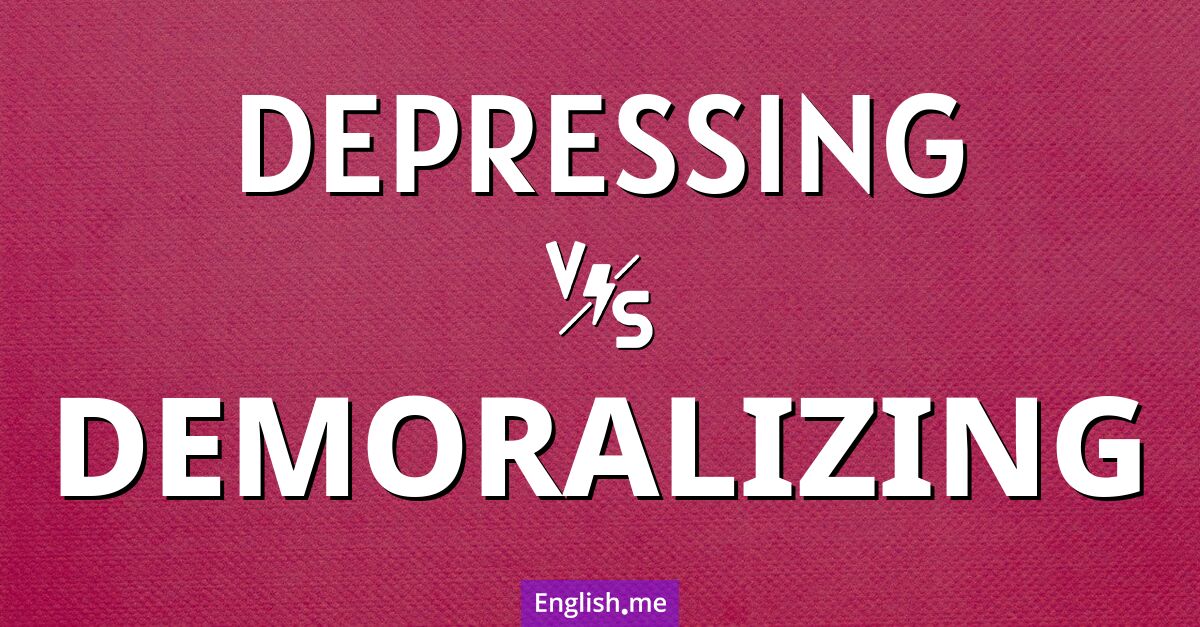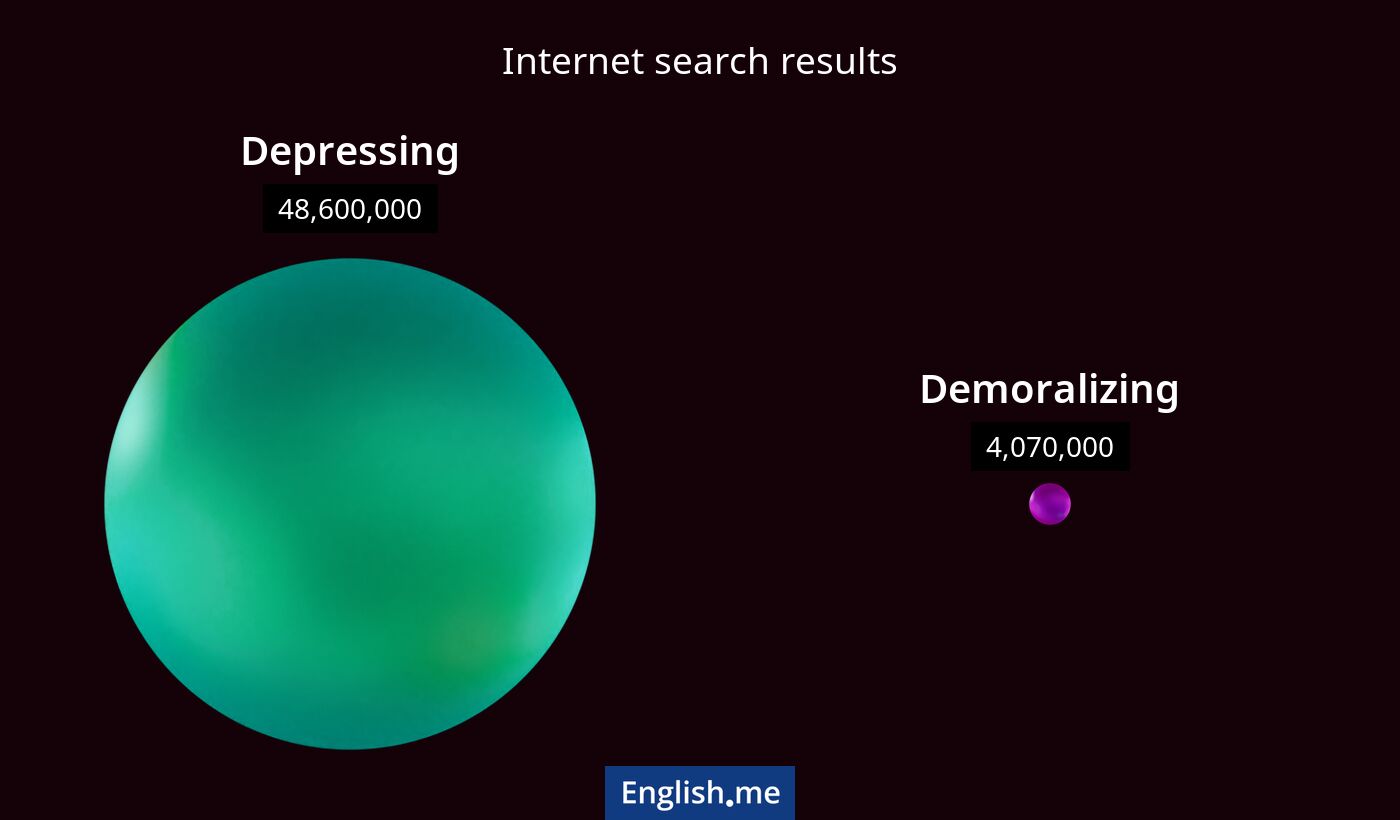Unpacking gloom: "depressing" vs. "demoralizing"
Reviewed and edited by  Lloyd Cooper 13/10/2024, 06:40
Lloyd Cooper 13/10/2024, 06:40
English.me team member

 What is similar?
What is similar?
Both "depressing" and "demoralizing" describe situations or experiences that negatively impact a person's emotional state. They convey a sense of discouragement and sadness and often result in a loss of motivation or hope.
 What is different?
What is different?
While "depressing" generally refers to causing a feeling of sadness or gloom, "demoralizing" specifically implies a loss of confidence, spirit, or morale. A situation can be depressing in a broader emotional sense, whereas demoralizing specifically targets one's motivation or resolve.
 Which one is more common?
Which one is more common?

 Examples of usage
Examples of usage
Depressing- The rainy weather all week has been really depressing.
- Reading the news lately can be quite depressing.
- The movie was well-made but utterly depressing.
- The team's constant losses were demoralizing for the players.
- Criticism from peers can be demoralizing when trying to innovate.
- The lack of progress after so much effort was demoralizing.

 English
English español
español française
française italiano
italiano deutsche
deutsche 日本語
日本語 polski
polski česky
česky svenska
svenska Türkçe
Türkçe Nederlands
Nederlands